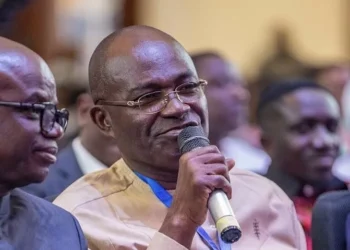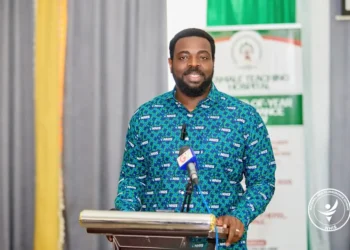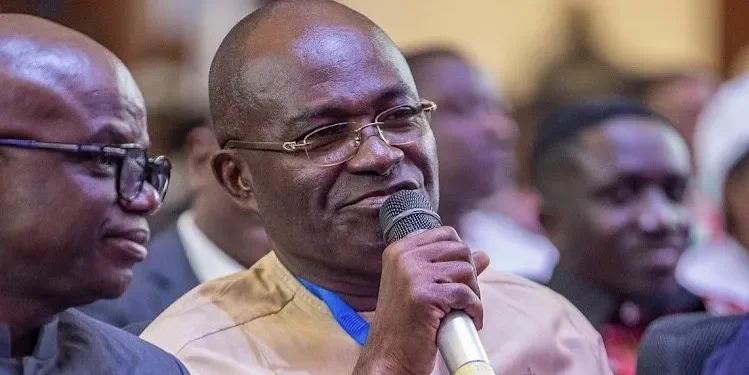Hon. John Abdulai Jinapor, MP and Chairman of the NDC Energy Manifesto Committee, has come forward to address a misleading headline concerning the National Democratic Congress (NDC) and its stance on petroleum product prices. Hon. Jinapor provided clarity on the party’s position and criticized the current government’s handling of the economy.
Hon. Jinapor’s press statement unequivocally denies the allegations made in these reports. He asserted that at no point during his presentation did he suggest that the next NDC government would refrain from reducing petroleum prices. To support his claim, he referenced an available online video of his presentation, which he urges the public to review for verification.
“On the contrary, I stated that if the Akufo-Addo government cannot reduce the prices of petroleum products, they must not allow the prices to go through the roofs as we are currently witnessing.”
Hon. John Abdulai Jinapor, MP and Chairman of the NDC Energy Manifesto Committee
Hon. Jinapor’s actual statement was a critique of the current government’s handling of petroleum prices, not a forecast of the NDC’s future policies.
In his press release, Hon. Jinapor emphasized the NDC’s track record under President John Mahama, highlighting the party’s effective management of petroleum prices.
Hon. Jinapor contrasted this with the current administration’s performance, noting a significant increase in the cost of petrol.
“The price of a gallon of petrol, which sold under the NDC Government for GHS 14, today now sells at about GHS 60,” Hon. Jinapor stated, pointing out a more than 400% increment under the Akufo-Addo/Bawumia administration.
The drastic rise in fuel prices is not just a standalone issue but a symptom of a broader economic crisis. Hon. Jinapor criticized the current government for what he described as “clueless and incompetent” management that has led to severe economic instability.
Hon. Jinapor cited the rapid depreciation of the Ghanaian cedi and unprecedented inflation rates as evidence of the administration’s failure to stabilize the economy.
A Call for Accountability
Hon. Jinapor’s statement is more than just a rebuttal; it is a call to action. He urged the public to dismiss the false narratives being circulated and to focus on the pressing economic issues facing the country.
“Rather than using limited resources to concoct and churn out false narratives, the Bawumia-led economic management team should focus on fixing the economy to reduce the overbearing economic hardships being experienced by the ordinary Ghanaian.”
Hon. John Abdulai Jinapor, MP and Chairman of the NDC Energy Manifesto Committee
This incident underscores the critical role of media in shaping public perception and the importance of responsible journalism. In an era where misinformation can spread rapidly through digital platforms, the accuracy of media reports is paramount.
Hon. Jinapor’s experience serves as a reminder of the potential harm caused by misreporting and the necessity for media outlets to verify facts before publication.
As Ghana approaches its next election cycle, the management of petroleum prices is likely to remain a hot-button issue. Both the NDC and the current government will be under scrutiny for their past records and future promises regarding economic management and energy policies.
For the NDC, Hon. Jinapor’s emphatic statement sets the tone for a campaign that will likely emphasize economic competency and a return to effective management practices. The false reports about his statement on petroleum prices, though refuted, may also galvanize the NDC’s efforts to communicate its policies clearly and combat misinformation.
The press statement by Hon. John Abdulai Jinapor highlighted the ongoing challenges of political discourse in Ghana, where misinformation can quickly distort public perception. Jinapor’s firm denial and call for economic focus over false narratives resonate with a populace weary of economic hardship.
This incident is a clarion call for both politicians and the media to engage in responsible communication and to prioritize the well-being of the Ghanaian people over partisan gains. The future of Ghana’s economic stability and growth hinges on these principles being upheld.
READ ALSO: Noble Nketsiah Credits Esther Smith for Aiding His Music Career






















